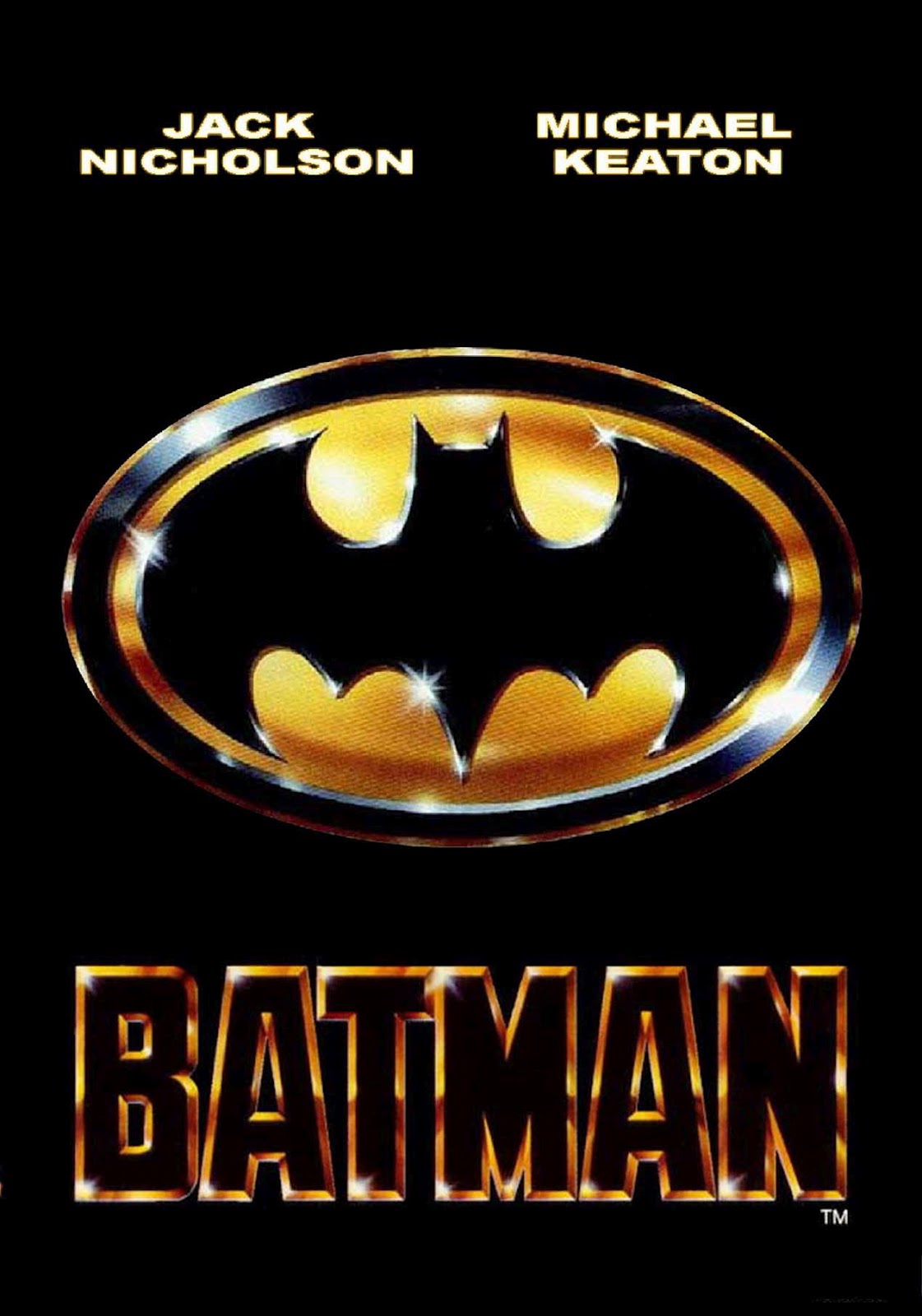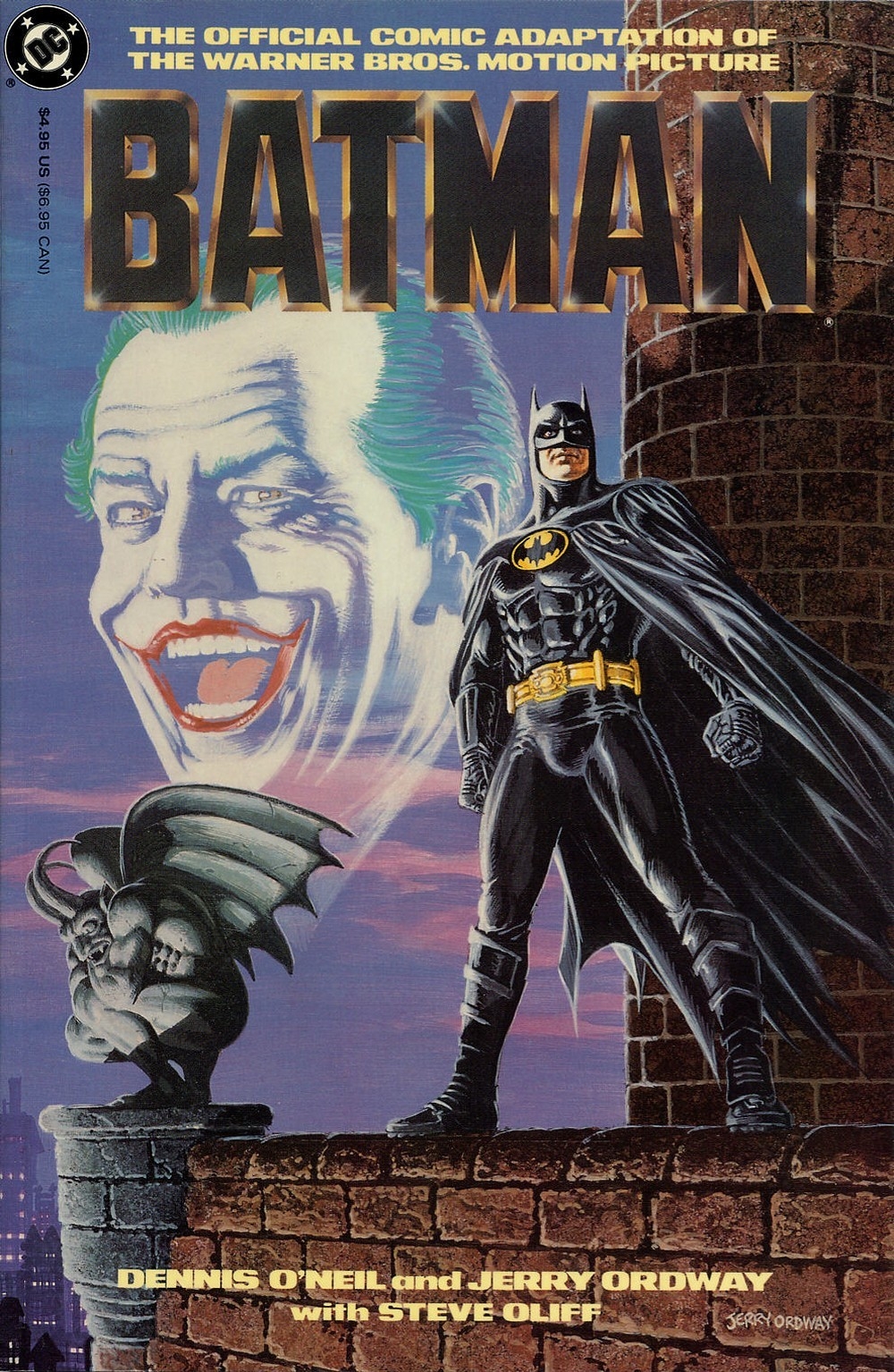Batman (1989)
Directed by Tim Burton
Contains spoilers.
With his recent releases you'd be hard pressed to believe that, once upon a time, Tim Burton directed a Batman movie. But he did, and in 1989 it was great. It would spawn three sequels and set the atmospheric tones of superhero films for decades to come.
Most comic or superhero films spend copious screen time on the protagonist's background, the hero's origin. Burton largely skips this. Refreshingly, he starts with Batman already existing, already a myth of Gotham. He doesn't waste time showing us the backstory of Bruce Wayne because everyone knows he's the hero. Instead, Burton languishes screen time on the Joker, showing us his underhanded smarts, his change into a villain, his showboating, and his overzealous humor. The plot builds between the two, with the Joker selecting Batman as his obvious rival while he attempts to both take over Gotham and woo Vicki Vale, the smart investigator researching Batman.
While the story itself isn't amazing, it doesn't have any dumb or boring subplots, is fairly straightforward and easy to understand, and at the very least remains interesting. With various characters entering into the story, some might not get adequate backgrounds or story arcs, but Burton weaves everyone's story together, making all of them important to the progression.
Instead of placing the lion's share of significance in the story, Burton focuses on the depiction of the story. And that depiction, the mood and atmosphere that Burton and his production team create, is what makes Michael Keaton's stint as Batman so memorable. Before the trend of grittily realistic portrayal, Burton has employed set designers and artists to show Batman in a more focused light. And that's a major feat, because what Burton creates, the look he conveys, the artistic avenues he employs, are fully endorsed by Bob Kane, the creator of Batman. With the help of Anton Furst, as the production designer, Burton creates a dark and moody film. He shows us an ugly Gotham, riddled and ruled by crime. The buildings are bleak, the streets are gray, and the people are downtrodden; the city government seems totally ineffectual. Batman, on the other hand, looks foreboding and powerful, a black mass of justice and fear hunting criminals of all kinds.
But the true pièce de résistance is Jack Nicholson as Jack Napier, aka the Joker, a villain with more in mind than just money. Most superhero movies, the modern ones especially, don't do much with the villains except for put the hero in paltry danger that we know he'll escape. In fact, in a somewhat unfortunate turn, most superhero movies become so self-involved that they become less of a comic book movie and more of a serious action/drama, sometimes with a few jokes thrown in. Burton's mood in his 1989 hero flick may have started that serious sensibility but he also had the good sense to balance that dramatic tone with a fun villain that didn't take himself seriously at all. In a great contrast to most hero movies in both plot and tone, we get more of an origin story for the Joker and when the two nemeses finally meet, we get a twist to the comic books, and do get to see the murder of Bruce Wayne's parents during the climactic fight. While the comics have a thug named Joe Chill as the murderer, Burton flips it so that the once amateur Jack Napier is the gunman.
In doing so, we get to see Bruce's darker side, the brooding child still hurt over the loss of his parents, the angry boy still wanting revenge that we're probably lucky went down a righteous path and not an evil one. In a nod to the original Batman comics, the realization that Joker is Jack Napier, and the gangster who shot his parents, brings out that very same dark side that he usually keeps in check, and actually has no problem trying to kill Jack. That gives us a fight between the caped crusader and a chemically crazy mobster who puts glasses on and jokes, "You wouldn't hit a guy with glasses, would you?"
Although Robocop released 2 years prior to Batman, and was probably the first, dark depiction of a superhero, Burton's film is the first comic adaptation that really feels like a comic book. It combines humor, drama, and action in a robustly dark manner and, with the straightforward and surprisingly character driven narrative, remains a classic comic portrayal. The 1989 depiction of Batman could even be considered a better comic book movie than many modern attempts, most of which take themselves too seriously.
- Acting – 16 / 20
- Story – 11 / 20
- Cinematography – 15 / 20
- Soundtrack – 7 / 10
- Entertainment Factor – 8 / 10
- Fantasy/Action – 6 / 10
- Other – 10 / 10
TL;DR: Keaton's traipse as Batman has become an iconic stepping stone of the superhero movie genre. Though Superman released over a decade prior, Tim Burton's Batman would set the tone for the following 3 decades of comic book films: gritty and serious. The story could be better, but the acting, the atmosphere, the amount of campiness, there really can be no major complaints. Obviously there's a different style to it compared to more modern movies, but as the movie that spurred a lasting franchise it's arguably classic.

